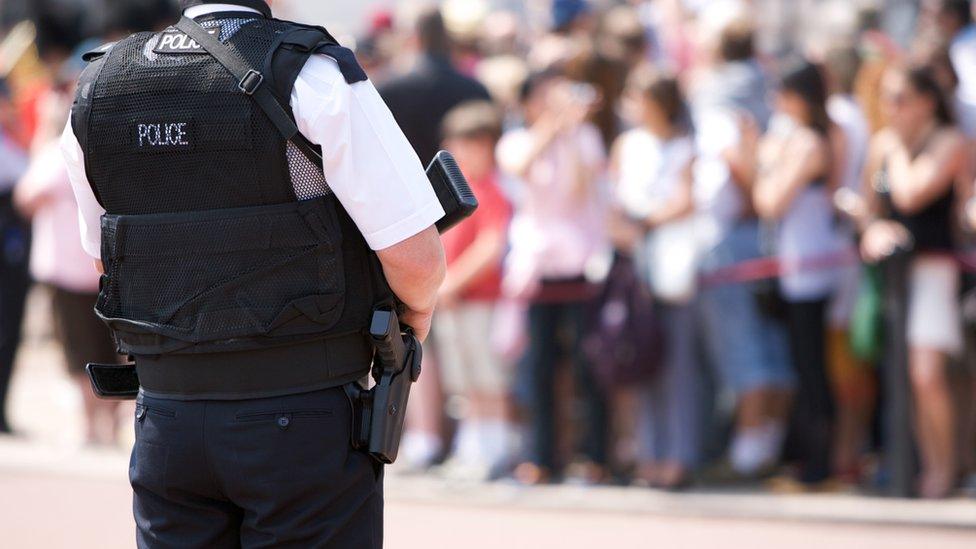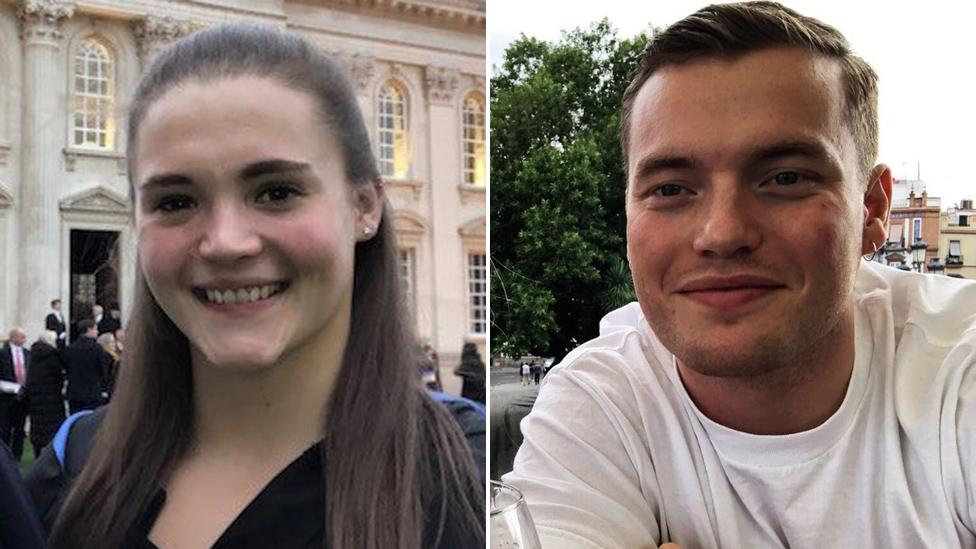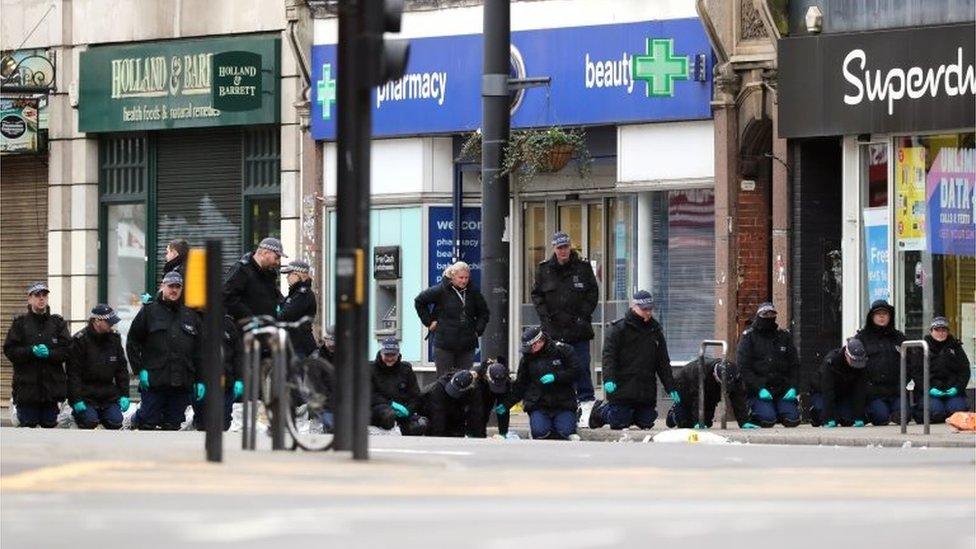Terror suspects could face indefinite curbs under new legislation
- Published

Court orders restricting the movements of suspected terrorists could be renewed indefinitely under new legislation unveiled by the government.
The bill would lower the standard of proof to impose the orders, known as TPims, and remove the current two-year limit that applies to them.
Suspects would also have to register all electronic devices at their home address.
But ministers have been challenged to justify the need for the changes.
The amendments are being proposed under the Counter Terrorism and Sentencing Bill, which aims to ensure the most serious offenders spend longer in prison.
Ministers had promised tougher action following two terror attacks in London, at Fishmongers' Hall and in Streatham that took place within the last year.
The introduction of the legislation, initially due in March, has been delayed by the coronavirus pandemic.
TPims (Terrorism Prevention and Investigation Measures) can restrict terror suspects' ability to travel overseas, or make them live under an enforced curfew or electronic tagging. Only five are currently in effect.
Introduced in 2011, they allow security services to monitor people they believe to be involved in terrorism but cannot be prosecuted or deported.
Under the new bill, the home secretary would only need "reasonable grounds" someone is involved in terrorist activity to impose one, rather than on the balance of probabilities as at the moment.
Suspects would have to register all electronic devices at their house, not just their own, and could be subject to lie detection and drug tests.
TPims could also be renewed beyond the current two-year limit without requiring new evidence, subject to review.


The announcement that TPims are to be strengthened is the surprise element in a package of sentencing changes that has been heavily trailed.
TPims were introduced when the Conservatives were in Coalition with the Liberal Democrats as a lighter-touch form of control orders, which had themselves replaced an even more restrictive measure, detention without trial of foreign terror suspects.
Unlike their predecessors, TPims have been used sparingly and with little controversy.
But two attacks in London, at Fishmongers Hall and Streatham, carried out by men who were being monitored after serving terror offences, has clearly focused minds in Whitehall on what further steps are needed.
Bolstering TPims, so that they resemble control orders, is a simple change that a Conservative government with a hefty majority will have no trouble pushing through.
But it's unclear whether it will make a significant difference.

As well as the changes to TPims, the legislation would ensure people convicted of serious offences, such as preparing acts of terrorism or directing a terrorist organisation, spend a minimum of 14 years in prison.
There is currently no minimum term for such offences.
Home Secretary Priti Patel said terror attacks last year had revealed "serious flaws" in the way the government handles terror offenders.
"We promised to act and today we are delivering on that promise," she said.
"Those who senselessly seek to damage and destroy lives need to know we will do whatever it takes to stop them."
'Roll back the years'
Jonathan Hall QC, the independent reviewer of terror laws, said the latest changes would "roll back the years" to the more restrictive control order regime, introduced under Labour in 2005.
He told the BBC: "They would leave individuals with less protection than they currently have - and the first question is, what is the operational case for making these changes? What is wrong with the current regime?"
"Given the nature of these changes, there is a persuasive burden to explain why safeguards which have been built up over the years should now be lost."
Shadow justice secretary David Lammy said Labour would "look in detail" at the proposed changes in the bill, adding that sentencing laws need updating.
He said the party would "work constructively" with ministers on "measures that reduce the chances of those who commit terrorist offences from re-offending".
- Published21 January 2020

- Published24 February 2020
